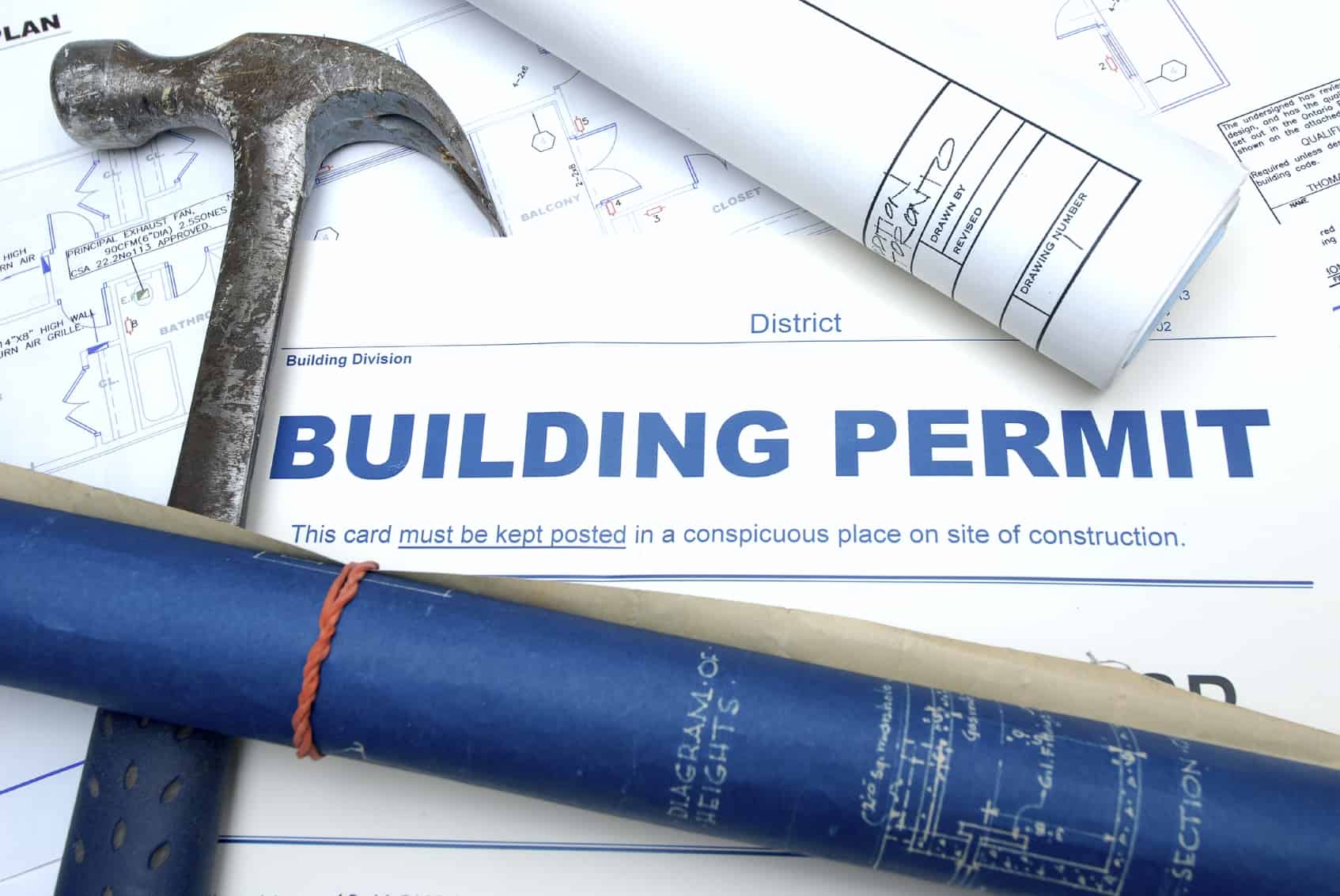Home>diy>Building & Construction>How To Get Into A Construction Union


Building & Construction
How To Get Into A Construction Union
Modified: March 6, 2024
Learn how to join a construction union and start your career in building construction. Find out the requirements and steps needed to become a member.
(Many of the links in this article redirect to a specific reviewed product. Your purchase of these products through affiliate links helps to generate commission for Storables.com, at no extra cost. Learn more)
Introduction
Getting into a construction union offers numerous benefits for individuals seeking a career in the building industry. Unions provide a strong support system, ensuring fair wages, safe working conditions, and access to training and advancement opportunities. Joining a construction union is an excellent way to gain job security, enhance your skills, and build a successful career in the construction field.
In this article, we will explore the process of getting into a construction union, from understanding the benefits of union membership to navigating the application and apprenticeship programs. Whether you’re a seasoned construction worker looking to transition into a union or a beginner starting your career, we will guide you through the steps necessary to join a construction union and thrive in the industry.
Before we delve into the details, let’s take a moment to understand the advantages of joining a construction union.
Key Takeaways:
- Joining a construction union provides job security, higher wages, and valuable training opportunities, ensuring a successful career in the building industry.
- To join a construction union, meet requirements, research and choose the right union, apply, complete an apprenticeship, and advance through ongoing education and involvement.
Read more: What Is A Construction Union
Benefits of Joining a Construction Union
Joining a construction union offers a range of benefits that can greatly enhance your career and improve your overall working conditions. Here are some of the key advantages of becoming a union member:
- Job Security: Construction unions work hard to protect the rights and interests of their members. Being part of a union means you have the support of an organized group that negotiates fair wages, benefits, and job protections on your behalf. Unions help ensure that you have a stable and secure career in the construction industry.
- Higher Wages: Union members generally receive higher wages compared to non-union workers. Unions negotiate collective bargaining agreements that set minimum wage rates for different positions, ensuring fair compensation for their members. These higher wages can help you provide for yourself and your family, improve your standard of living, and plan for the future.
- Healthcare and Retirement Benefits: Construction unions often provide comprehensive healthcare coverage for their members and their families, helping to alleviate the burden of medical expenses. Additionally, unions typically have retirement plans in place, such as pensions or 401(k) plans, which can provide financial stability in your later years.
- Training and Skill Development: Construction unions prioritize the professional development and skill enhancement of their members. They offer extensive training programs that cover a wide range of construction trades, allowing you to continually upgrade your skills and stay ahead in the industry. This training not only improves your employability but also enables you to take on more challenging and higher-paying roles.
- Safe Working Conditions: Unions advocate for safe working conditions and prioritize occupational health and safety. They ensure that employers strictly adhere to safety regulations, provide the necessary safety equipment and training, and create a secure work environment. By being part of a construction union, you can have peace of mind knowing that your well-being is a top priority.
These benefits highlight the advantages of joining a construction union and showcase why it is a valuable step to take in your career. Now, let’s explore the requirements and steps to join a construction union.
Requirements to Join a Construction Union
Before you can join a construction union, there are certain requirements that you must meet. While specific requirements may vary between unions, here are some common prerequisites for membership:
- Age and Legal Status: Most construction unions require you to be at least 18 years old to join. You must also have legal authorization to work in the country where the union is located.
- Educational Background: A high school diploma or its equivalent is typically required to become a union member. However, some unions may have alternative pathways for individuals without a diploma, such as passing an equivalency test or completing certain vocational training programs.
- Experience in the Construction Industry: Many construction unions prefer applicants who have some prior experience in the industry. However, some unions have apprenticeship programs that offer entry-level opportunities for individuals without previous experience.
- Physical Fitness: The construction industry can be physically demanding, so unions require members to be physically fit and capable of performing the necessary tasks. Some unions may require a medical examination or physical fitness test to assess your suitability for the job.
- Pass Drug Screening: As safety is a top priority in construction, many unions mandate passing a drug screening test as a condition for membership. This helps ensure a drug-free work environment and maintain the safety of union members and their colleagues.
It’s important to note that these are general requirements, and specific unions may have additional criteria or vary in their specific requirements. It’s essential to research and understand the requirements of the union(s) you are interested in joining.
Once you have determined that you meet the necessary requirements, the next step is to research and choose the right construction union for you. We will discuss this in the next section.
Researching and Choosing the Right Construction Union
When it comes to joining a construction union, it is crucial to find the right union that aligns with your goals, values, and career aspirations. Here are some steps to help you research and choose the right construction union:
- Identify Your Goals: Before you start researching unions, take some time to identify your career goals and what you hope to achieve by joining a union. Are you looking for specific training opportunities, better wages, or improved job security? Understanding your goals will help you narrow down your options.
- Union Directories: Utilize union directories available online or through industry associations to identify the construction unions in your area. These directories provide valuable information such as contact details, jurisdictions, and trade specialties.
- Research Union Websites: Visit the websites of the unions you are interested in joining. Explore their mission statement, available benefits, training programs, and membership requirements. This will give you a comprehensive understanding of what they offer and if it aligns with your goals.
- Reach out to Current Members: Seek out opportunities to connect with current or former union members in your network. They can provide valuable insights into the union’s culture, work opportunities, and the overall experience of being a member.
- Attend Union Information Sessions: Check if the unions you are considering offer information sessions or open houses. These events provide an opportunity to meet union representatives, ask questions, and get a feel for the union’s values and culture.
- Consider Local Affiliations: Some construction unions are affiliated with larger organizations or unions at the regional or national level. Research if these affiliations provide additional benefits or networking opportunities that can enhance your career prospects.
- Evaluate Benefits and Training Programs: Compare the benefits and training programs offered by different unions. Look for opportunities for skill development, apprenticeship programs, healthcare coverage, retirement plans, and any other benefits that are important to you.
- Financial Considerations: Evaluate the union dues and fees that you would be required to pay as a member. Take into account your current financial situation and ensure that the benefits outweigh the cost of membership.
By thoroughly researching and evaluating different construction unions, you can make an informed decision and choose the one that best fits your career goals. Once you have narrowed down your options, the next step is to apply for membership in the construction union of your choice.
Applying to a Construction Union
After conducting thorough research and identifying the construction union that aligns with your goals, it’s time to begin the application process. Here are the steps to apply for membership in a construction union:
- Contact the Union: Start by reaching out to the union’s local office or designated contact person to express your interest in joining. They will provide you with the necessary information and guide you through the application process. Be prepared to provide your personal details, such as your name, contact information, and relevant work experience.
- Membership Application: Fill out the membership application form provided by the union. This form usually requires you to provide detailed information about your educational background, work experience, and any relevant certifications or licenses you hold. Double-check your application for accuracy and completeness before submitting it.
- Submit Required Documents: Along with your application, you may be required to submit certain supporting documents. These documents can include your high school diploma or equivalent, trade certifications, identification documents, and any other qualifications specified by the union.
- Application Fee: Some unions require an application fee to process your membership application. Be prepared to pay this fee if it is applicable. Ensure that you understand the fee structure and payment methods accepted by the union.
- Follow-Up: After submitting your application, follow up with the union to confirm receipt and inquire about the next steps. This shows your enthusiasm and commitment to becoming a member. If there are any missing documents or additional requirements, address them promptly.
- Membership Approval: The union will review your application, along with the supporting documents provided. The approval process may take some time, as the union evaluates your qualifications and determines your eligibility for membership. Be patient and prepared to wait for their response.
- Orientation and Onboarding: If your application is approved, you will be invited to an orientation session where you will receive important information about the union, its policies, and your rights and responsibilities as a member. This session is also an opportunity to meet other new members and union representatives.
Keep in mind that each construction union may have its own specific application process and timeline, so it is essential to follow their instructions and communicate with them throughout the process. Once you are accepted into the construction union, you may be required to complete an apprenticeship program as part of your membership. We will explore this next step in the construction union journey.
Read more: What Is A Union In Construction
Preparing for the Application Process
Before applying to a construction union, it is important to be well-prepared to increase your chances of success. Here are some steps to help you prepare for the application process:
- Educational Requirements: Ensure that you meet the educational requirements specified by the construction union. If you do not have a high school diploma or equivalent, consider obtaining one through a GED program or a recognized adult education institution.
- Gain Relevant Experience: If you are new to the construction industry, gaining some experience or exposure to the field can be beneficial. Consider volunteering on construction projects, participating in workshops, or working as a helper or laborer to learn the basics.
- Develop Marketable Skills: Identify the specific skills that are in demand in the industry and work on acquiring them. This could include skills such as carpentry, plumbing, electrical work, or welding. Take advantage of training programs and courses offered by vocational schools, community colleges, or online platforms.
- Build a Strong Resume: Craft a well-organized and concise resume that highlights your relevant experience, skills, and qualifications. Tailor your resume to showcase how your background aligns with the requirements of the construction union you are applying to.
- Obtain Certifications: Research the certifications that are valued in the construction industry and consider obtaining them. Examples include OSHA certifications for safety training, trade-specific certifications, or first aid and CPR certifications.
- Prepare References: Reach out to individuals who can provide professional references for your application. These references can be supervisors, colleagues, or instructors who can vouch for your work ethic, skills, and character.
- Attendance and Punctuality: Emphasize the importance of having good attendance and being punctual. Construction unions value individuals who demonstrate reliability, as it is crucial for project success. Develop a track record of dependability in your work and personal commitments.
- Stay Informed: Stay up-to-date with industry trends, practices, and developments. Familiarize yourself with current construction projects and the demands of the market. Knowledge about the industry can be advantageous during the application process and interviews.
By taking these steps to prepare for the application process, you will position yourself as a qualified and committed candidate. Demonstrating your dedication and readiness will help you stand out from other applicants and increase your chances of being accepted into the construction union.
Research the specific requirements and application process for the construction union you are interested in. This may include completing an apprenticeship program, obtaining relevant certifications, and demonstrating your skills and experience.
Taking Required Tests and Assessments
As part of the application process for joining a construction union, you may be required to undergo certain tests and assessments to evaluate your skills, knowledge, and aptitude in the construction field. These tests help unions determine your eligibility for membership and may vary depending on the specific union and trade you are applying for. Here are some commonly administered tests and assessments:
- Trade-specific Knowledge Test: Many construction unions require applicants to undertake a trade-specific knowledge test. This test assesses your understanding of the fundamental concepts, terminology, and practices related to your chosen trade. It may cover topics such as safety protocols, techniques, and industry regulations.
- Math Skills Assessment: Since construction work often involves calculations, you may be required to take a math skills assessment to evaluate your ability to perform basic mathematical calculations relevant to the construction trade. This can include measurements, fractions, geometry, and algebra.
- Mechanical Aptitude Test: Some construction unions administer a mechanical aptitude test to assess your ability to understand and work with mechanical systems and equipment. This test evaluates your comprehension of mechanical principles, spatial visualization, and problem-solving skills.
- Physical Fitness Test: Due to the physically demanding nature of construction work, certain unions may have physical fitness requirements. You may be required to undergo a physical fitness test to assess your strength, endurance, and agility. This ensures that you can safely perform the physical tasks involved in the trade.
- Drug Screening: Many construction unions have a zero-tolerance policy for drug use. As a result, you may be required to undergo a drug screening test to ensure a drug-free and safe work environment. This test typically involves providing a urine sample, which will be analyzed for the presence of illegal drugs or substances.
- Interview or Behavioral Assessment: In addition to tests, some unions may conduct an interview or behavioral assessment to evaluate your communication skills, professionalism, and attitude. This is an opportunity for the union to assess your compatibility and fit within the organization.
Preparing for these tests and assessments is crucial to maximize your chances of success. Familiarize yourself with the specific trade content, practice math exercises, and review mechanical concepts relevant to the construction industry. Additionally, ensure that you are in good physical condition through regular exercise and a healthy lifestyle.
By taking these tests and assessments seriously and demonstrating your knowledge, skills, and suitability for the construction trade, you increase your chances of being accepted into the construction union of your choice. Now, let’s explore the next step in the process: interviewing for membership.
Interviewing for Membership
After successfully completing the required tests and assessments, the next step in the process of joining a construction union is the interview. The interview is an opportunity for the union to assess your qualifications, experience, and suitability for membership. Here are some tips to help you prepare for the membership interview:
- Research the Union: Take the time to research and understand the mission, values, and goals of the construction union you are applying to. Familiarize yourself with their current projects, initiatives, and any recent news or developments. This demonstrates your enthusiasm and commitment to becoming a member.
- Know Your Application: Review your application and familiarize yourself with the information you provided. Be prepared to discuss your experience, qualifications, and any specific projects or work that showcase your skills. This will help you answer questions confidently during the interview.
- Practice Common Interview Questions: Prepare by practicing common interview questions. Think about your responses to questions such as why you want to join the union, what relevant skills or experience you bring, and how you handle challenging situations. This will help you articulate your thoughts clearly and effectively during the interview.
- Showcase Your Value: Highlight your unique strengths, qualities, and experiences that make you a valuable addition to the construction union. Discuss any specialized skills, certifications, or training that set you apart from other candidates. Emphasize your dedication, reliability, and ability to work well in a team environment.
- Dress and Behave Professionally: Dress in appropriate attire that reflects professionalism and respect for the interview process. Be punctual, arrive prepared, and maintain a courteous and professional demeanor throughout the interview. Show confidence, but also be attentive, listen actively, and engage in meaningful conversation with the interviewers.
- Ask Questions: Prepare a few thoughtful questions to ask the interviewers. This demonstrates your interest in the union and the desire to learn more about their operations, opportunities for career growth, and support available to members. Asking questions also allows you to assess if the union is the right fit for you.
- Follow-Up: After the interview, send a thank-you note or email to the interviewers expressing your gratitude for the opportunity to interview. This small gesture demonstrates your professionalism, appreciation, and continued interest in joining the construction union.
By adequately preparing and presenting yourself professionally during the membership interview, you increase your chances of impressing the interviewers and being accepted as a member of the construction union. If successful, you will move on to the next step: completing the union apprenticeship program.
Completing the Union Apprenticeship Program
Once accepted into a construction union, you will likely be required to complete an apprenticeship program. This program provides a structured and comprehensive training experience that combines classroom instruction and hands-on work in your chosen trade. Here are some essential aspects to know about completing a union apprenticeship program:
- Program Structure: The apprenticeship program typically consists of a predetermined number of hours of on-the-job training and classroom instruction. The duration of the program can vary depending on the trade and the union, ranging from a few months to several years.
- On-the-Job Training: During the apprenticeship, you will work alongside experienced professionals in your trade, learning essential skills and gaining practical experience. You will have the opportunity to apply what you have learned in the classroom to real-world construction projects, developing your proficiency and competence in your chosen field.
- Classroom Instruction: In addition to on-the-job training, apprenticeship programs require you to attend classroom instruction. These classes cover technical knowledge specific to your trade, safety regulations, blueprint reading, math, and other relevant subjects. Classroom instruction complements your hands-on experience and equips you with comprehensive knowledge in your field.
- Skill Development: The apprenticeship program emphasizes skill development, allowing you to enhance your expertise in your trade. By working under the guidance of experienced professionals, you have the opportunity to learn advanced techniques, refine your skills, and broaden your understanding of the construction industry.
- Progression and Evaluation: As an apprentice, your progress and performance will be assessed regularly. You will receive feedback and evaluations from your mentors and instructors to help you identify areas for improvement and track your development. The program typically includes specific milestones or benchmarks that you need to achieve to progress to the next phase of the apprenticeship.
- Mentorship and Networking: Your apprenticeship will allow you to build relationships with experienced professionals in your trade. Take advantage of mentorship opportunities to learn from their expertise and gain valuable insights. Networking with other apprentices and industry professionals can also open doors to future job opportunities.
- Certification and Journeyman Status: Upon successfully completing the apprenticeship program, you will typically obtain a certification recognized by the union and the construction industry. This certification signifies your competence and qualifies you for journeyman status, providing you with increased job prospects, higher wages, and the ability to work independently in your trade.
Completing a union apprenticeship program lays a solid foundation for a successful and rewarding career in the construction industry. It equips you with the necessary skills, knowledge, and credentials to excel in your trade and opens up opportunities for career advancement within the construction union.
Remember to approach the apprenticeship program with dedication, enthusiasm, and a willingness to learn. Take advantage of the valuable resources, support, and mentorship provided by the union to maximize your experience and ensure a successful transition into the workforce as a skilled construction professional.
With the completion of the apprenticeship program, you are now prepared to advance within the construction union and take your career to new heights.
Read more: How To Get A Job In Construction
Advancing in a Construction Union
Joining a construction union is just the beginning of a rewarding career in the industry. As a member of the union, you have access to a range of opportunities for advancement and growth. Here are some key steps to advance within a construction union:
- Continuing Education and Training: Stay committed to lifelong learning and professional development. Take advantage of the training programs, workshops, and classes offered by the union to expand your knowledge, acquire new skills, and stay up-to-date with the latest industry trends and advancements. This ongoing education will enhance your expertise and make you a valuable asset to your union and employers.
- Seek Leadership Roles: The construction union may have opportunities for its members to take on leadership positions. Whether it’s becoming a shop steward, foreperson, or committee member, actively seek out these roles to demonstrate your commitment and leadership skills. Taking on additional responsibilities can lead to increased job satisfaction, higher levels of job security, and greater recognition within the union.
- Networking and Relationship Building: Cultivate relationships with fellow union members, industry professionals, and contractors. Attend union events, industry seminars, and conferences to expand your network and connect with individuals who can provide valuable insights and opportunities. Building a strong network can lead to job referrals, mentorship, and access to new projects.
- Volunteer for Special Projects: Take initiative and volunteer for special projects, committees, or initiatives within the union or the construction industry. This demonstrates your commitment, willingness to contribute, and ability to tackle new challenges. Volunteering shows your dedication to your craft and can open doors to unique opportunities for career advancement.
- Collaborate and Share Knowledge: Actively engage with your union colleagues and share your knowledge and experiences. Collaborating with others fosters a sense of teamwork, promotes a positive work environment, and allows for the exchange of ideas. By contributing to the success of others, you enhance your own reputation as a dependable and valuable union member.
- Pursue Specialty Training and Certifications: Consider specializing in a specific aspect of your trade by pursuing additional training and certifications. For example, you could become certified in a specialized technique, equipment operation, or sustainable construction practices. These additional qualifications set you apart from others and make you more marketable for specialized projects.
- Commit to Union Involvement: Actively participate in union meetings, elections, and events. Voice your opinions, provide input, and be involved in the decision-making processes of the union. This level of commitment demonstrates your dedication and investment in the union’s mission and values.
Advancing in a construction union requires continuous effort, commitment, and a proactive approach to career development. By taking advantage of the resources and opportunities provided by your union, cultivating relationships within the industry, and continuously expanding your skills and knowledge, you can progress in your career and achieve greater success within the construction union.
Remember, advancing in a construction union is a journey. Embrace each opportunity with enthusiasm, remain adaptable to new challenges, and seize every chance to grow and excel in your chosen trade.
Conclusion
Joining a construction union can be a transformative step in your career as a building professional. It offers a wide range of benefits, including job security, higher wages, healthcare, retirement plans, and access to valuable training and advancement opportunities. By becoming a member of a construction union, you become part of a collective voice that supports and advocates for you and your fellow workers.
In this article, we have explored the process of getting into a construction union, starting from understanding the benefits of union membership to completing the union apprenticeship program and advancing in your career. We discussed the requirements to join a construction union, the importance of researching and choosing the right union for your goals, and how to prepare for the application process.
We also covered taking required tests and assessments, interviewing for membership, and the invaluable experience gained through completing a union apprenticeship program. Finally, we discussed the steps you can take to advance within the construction union, including ongoing education, leadership roles, networking, and continued involvement.
As you embark on your journey in the construction industry, remember the significance of ongoing growth and development. Stay dedicated to honing your skills, expanding your knowledge, and fostering strong relationships within the union and the industry as a whole.
By committing to the values and principles of the construction union, actively participating in union activities, and contributing to the success of your peers, you can build a successful and fulfilling career as a construction professional. Embrace the opportunities, continue learning, and work collaboratively to shape the future of the construction industry through your involvement in a construction union.
Good luck on your journey, and may your membership in a construction union be rewarding and prosperous!
Frequently Asked Questions about How To Get Into A Construction Union
Was this page helpful?
At Storables.com, we guarantee accurate and reliable information. Our content, validated by Expert Board Contributors, is crafted following stringent Editorial Policies. We're committed to providing you with well-researched, expert-backed insights for all your informational needs.














0 thoughts on “How To Get Into A Construction Union”